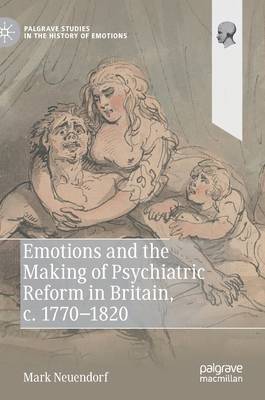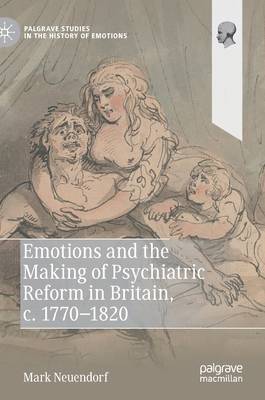
- Afhalen na 1 uur in een winkel met voorraad
- Gratis thuislevering in België
- Ruim aanbod met 7 miljoen producten
- Afhalen na 1 uur in een winkel met voorraad
- Gratis thuislevering in België
- Ruim aanbod met 7 miljoen producten
Emotions and the Making of Psychiatric Reform in Britain, C. 1770-1820
Mark NeuendorfOmschrijving
This book explores the ways which people navigated the emotions provoked by the mad in Britain across the long eighteenth century. Building upon recent advances in the historical study of emotions, it plots the evolution of attitudes towards insanity, and considers how shifting emotional norms influenced the development of a 'humanitarian' temperament, which drove the earliest movements for psychiatric reform in England and Scotland. Reacting to a 'culture of sensibility', which encouraged tears at the sight of tender suffering, early asylum reformers chose instead to express their humanity through unflinching resolve, charging into madhouses to contemplate scenes of misery usually hidden from public view, and confronting the authorities that enabled neglect to flourish. This intervention required careful emotional management, which is documented comprehensively here for the first time. Drawing upon a wide array of medical and literary sources, this book provides invaluable insightsinto pre-modern attitudes towards insanity.
Specificaties
Betrokkenen
- Auteur(s):
- Uitgeverij:
Inhoud
- Aantal bladzijden:
- 297
- Taal:
- Engels
- Reeks:
Eigenschappen
- Productcode (EAN):
- 9783030843557
- Verschijningsdatum:
- 20/11/2021
- Uitvoering:
- Hardcover
- Formaat:
- Genaaid
- Afmetingen:
- 148 mm x 210 mm
- Gewicht:
- 557 g

Alleen bij Standaard Boekhandel
Beoordelingen
We publiceren alleen reviews die voldoen aan de voorwaarden voor reviews. Bekijk onze voorwaarden voor reviews.












